Creating AI-generated religious art is a child’s play with the rise of advanced image generators.
Whether you’re decorating your home or preparing for a sacred holiday, AI-generated religious art can create stunning, visually captivating pieces that celebrate spirituality and diversity. By blending symbols, colors, and motifs from various faiths, AI can produce unique artworks that resonate with unity and reverence.
How to create your own AI-generated religious art pieces?
To create AI-generated religious art, one merely requires access to an AI image generator—several of which we’ve detailed in previous articles: Midjourney, DALL-E, and Ideogram, Mojo AI, Mystic AI, Imagen 3, Freepik AI, Pix AI, and more.
The tools themselves are quite standard, but the true artistry, as ever, lies in the prompts.
Below is a framework for crafting these prompts:
- Subject: Select your divine figure or sacred symbol
- Details: Consider robes, gestures, or surrounding elements
- Environment: Choose a setting—whether temple, church, or perhaps a transcendent landscape
- Artistic style: Opt for the classical, the abstract, or something avant-garde
- Additional elements: Infuse lighting, texture, or mood to elevate the scene
If you want to be a professional prompt engineer, we highly recommend you to read our guide explaining tricks and midjourney prompts for characters, logos… well everything. The best part is, it doesn’t matter if you use these tricks in any other AI image generator.
Check out below examples to get the grasp of it:
Prompt 1:A serene angel, golden wings extended, holding a glowing orb. Surrounded by clouds in a radiant heavenly sky. Classical Renaissance style, soft lighting, peaceful expression, intricate feather details
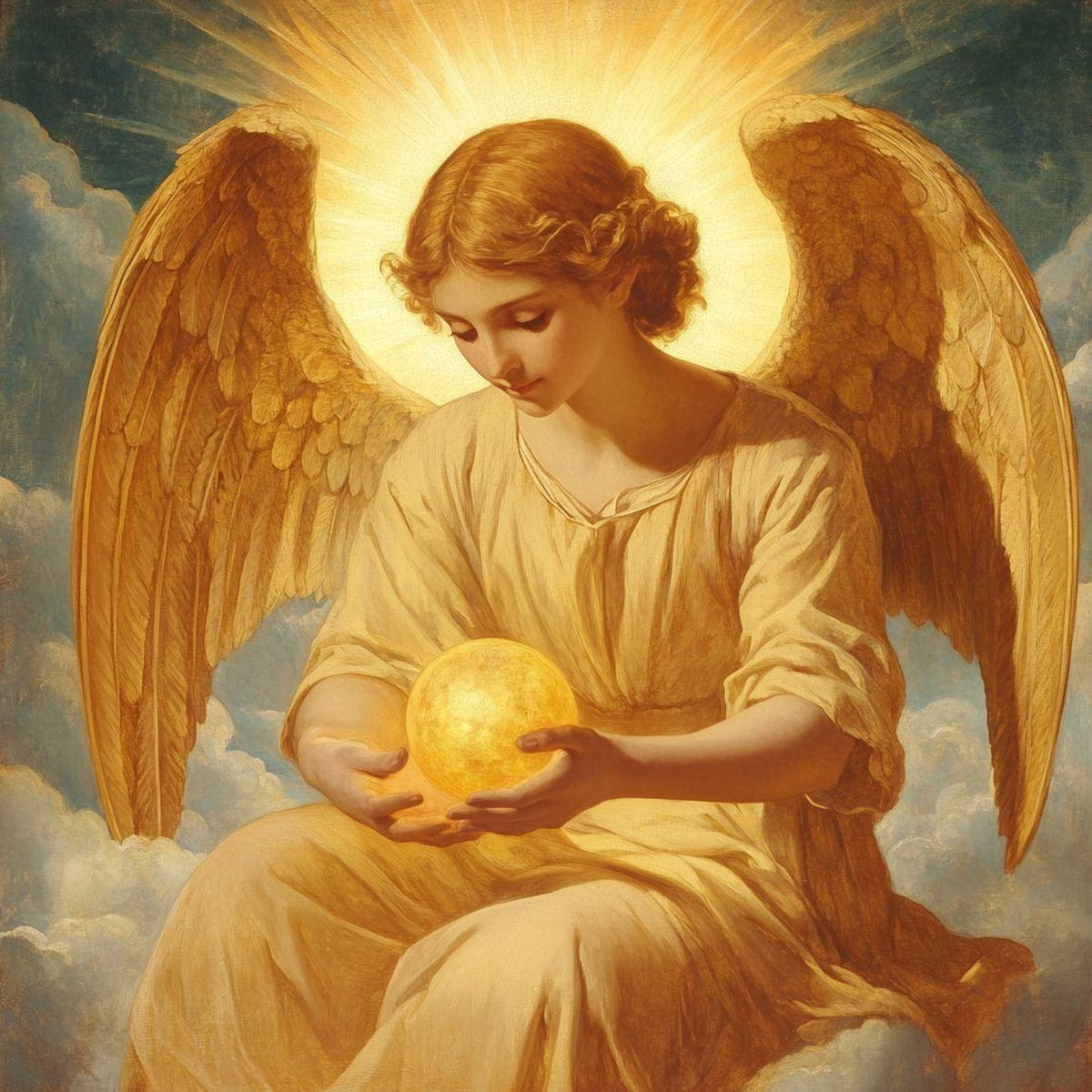
Let’s break down the Prompt 1 for you to understand the philosophy better, here’s how it looks:
- Subject: A serene angel
- Details: golden wings extended, holding a glowing orb
- Environment: Surrounded by clouds in a radiant heavenly sky
- Artistic style: Classical Renaissance style
- Additional Elements: soft lighting, peaceful expression, intricate feather details
Prompt 2:
Saint meditating by a riverbank at dusk, light reflecting off the water. Detailed halo, gentle robes flowing. Baroque-inspired with rich, warm colors, capturing deep contemplation and divine connection
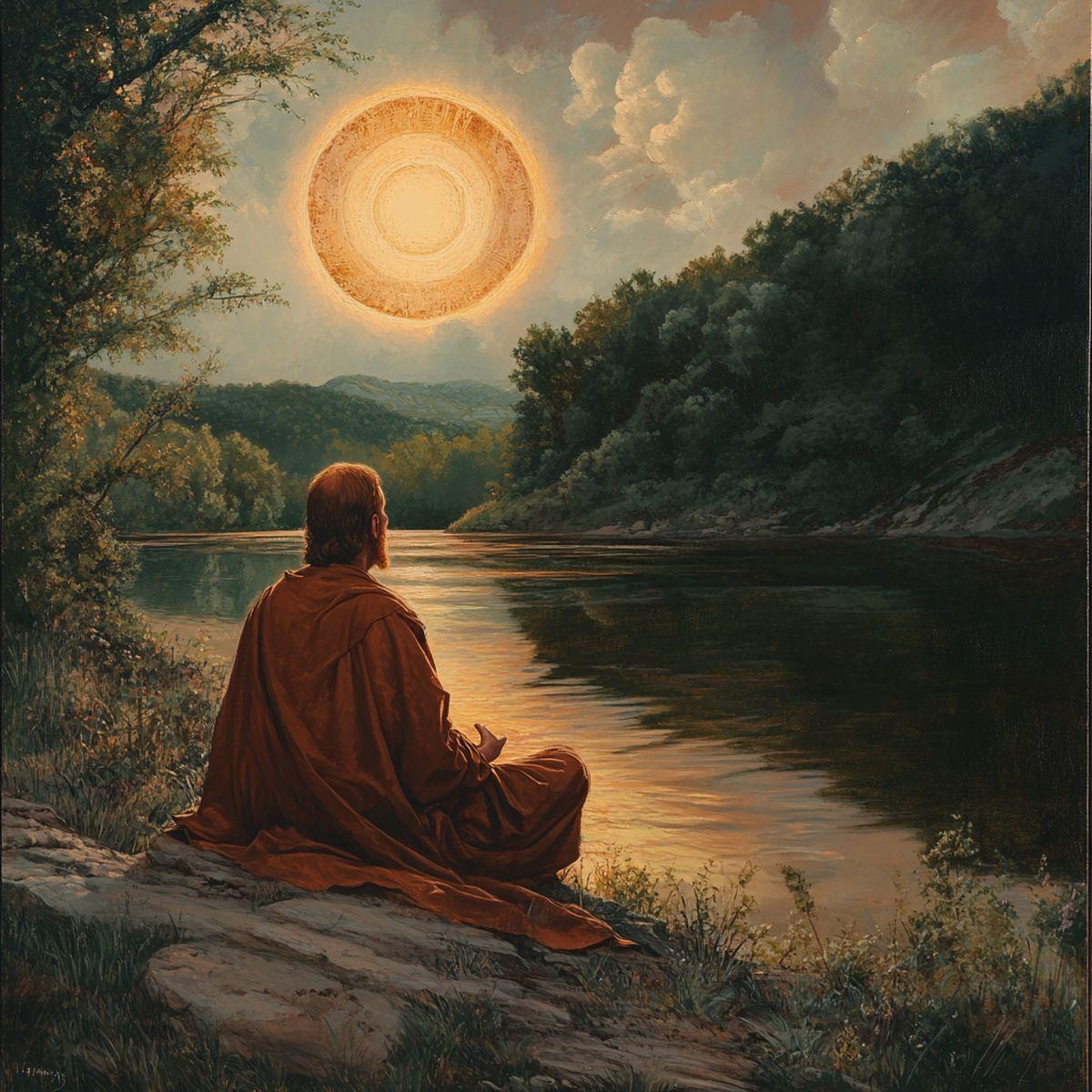
Prompt 3:
Ancient temple bathed in twilight, towering marble columns adorned with carvings. Mystic figures praying before a sacred altar. Byzantine style, intricate mosaics, soft candlelight creating a reverent atmosphere
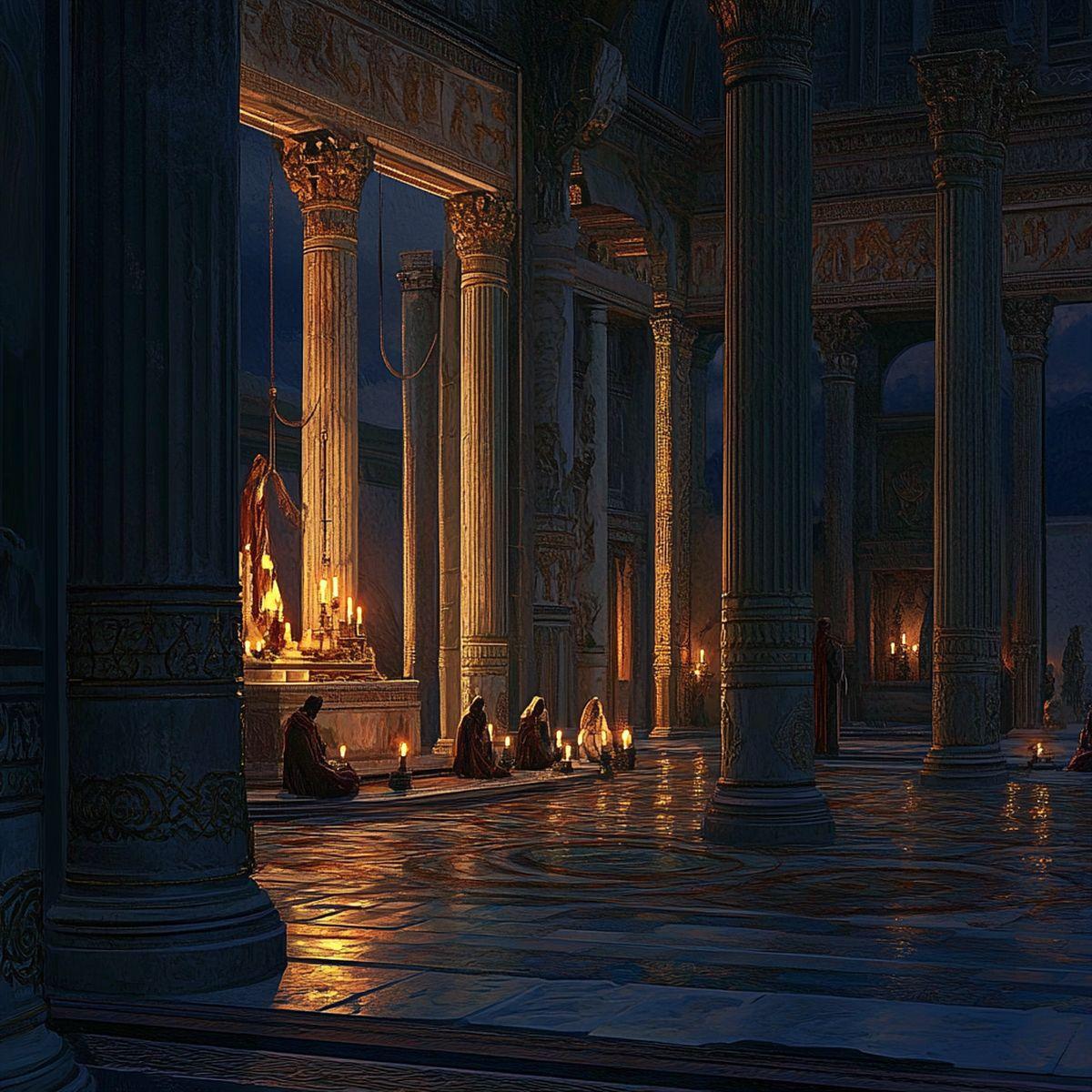
Prompt 4:
Sacred heart icon, burning with divine light, encircled by vibrant floral patterns. Gothic-inspired with deep reds and golds. Intricate detailing, luminous rays emanating, symbolizing faith and sacrifice
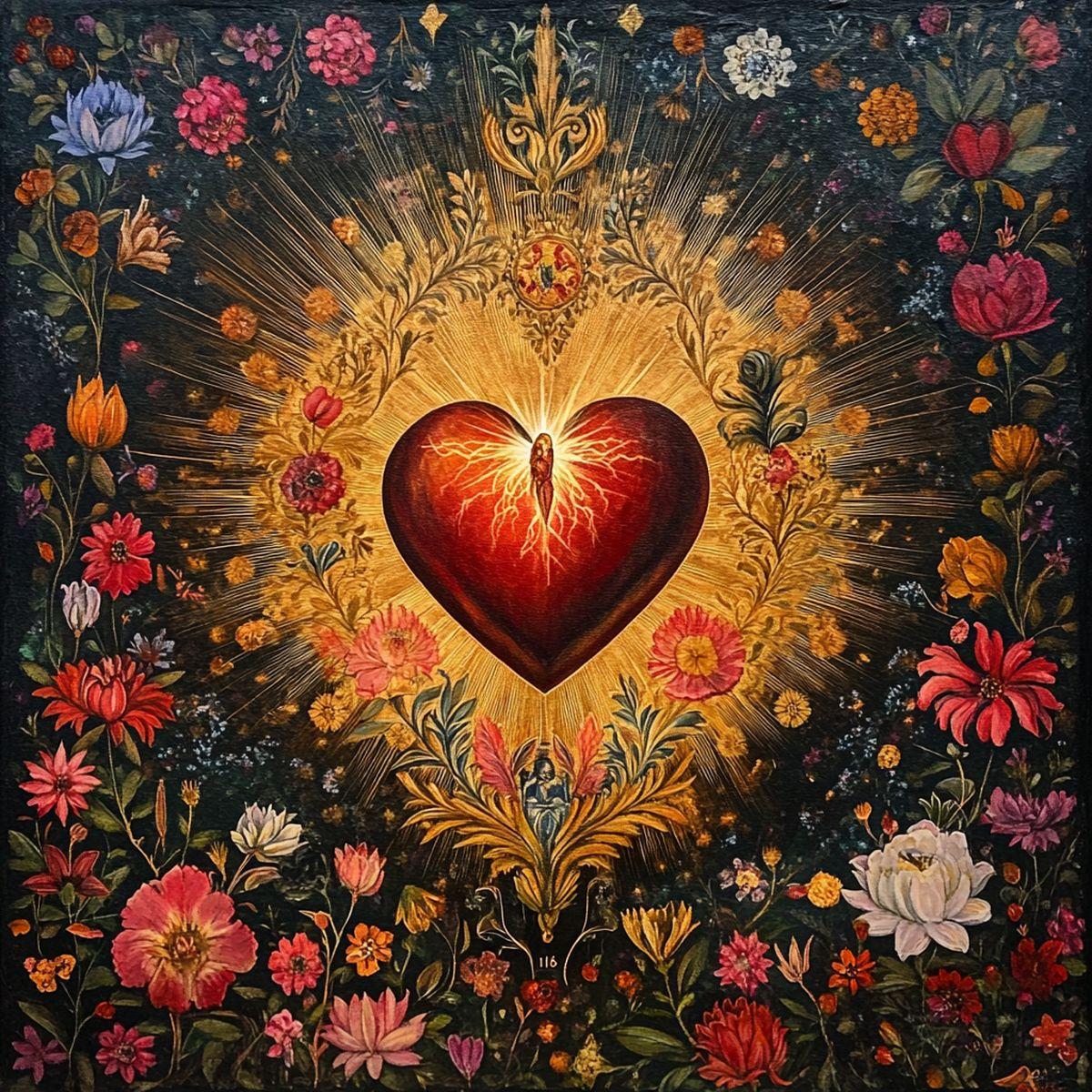
Prompt 5:
Devotional scene of a monk kneeling before an altar, incense swirling around him. High arches overhead. Medieval art style, dim candlelight, shadows enhancing the solemnity of the moment
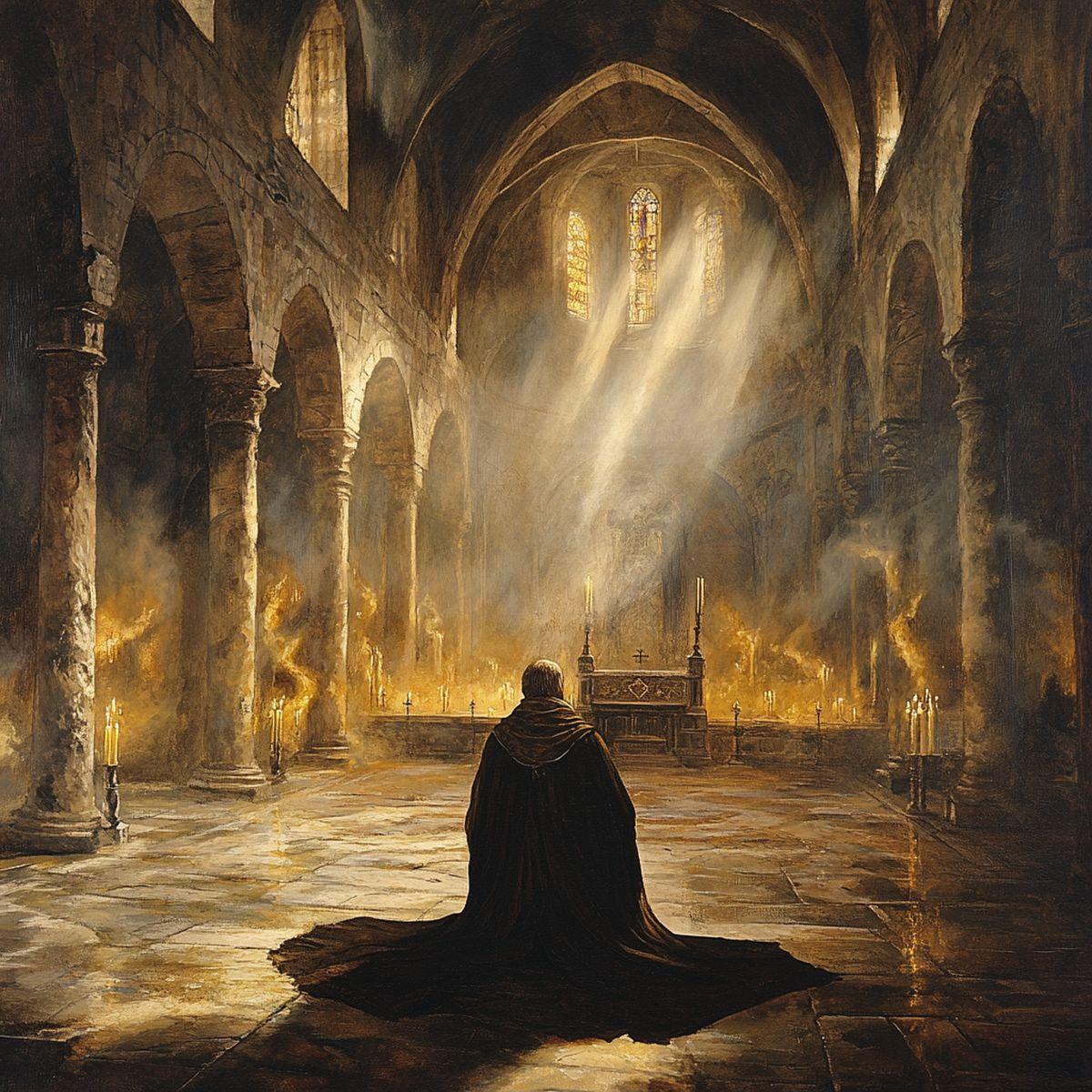
Prompt 6:
Ethereal figure of the Virgin Mary, robes flowing gracefully. Surrounded by blooming roses in a moonlit garden. Romanticism-inspired, soft pastel hues, delicate brushstrokes, and a gentle, protective gaze
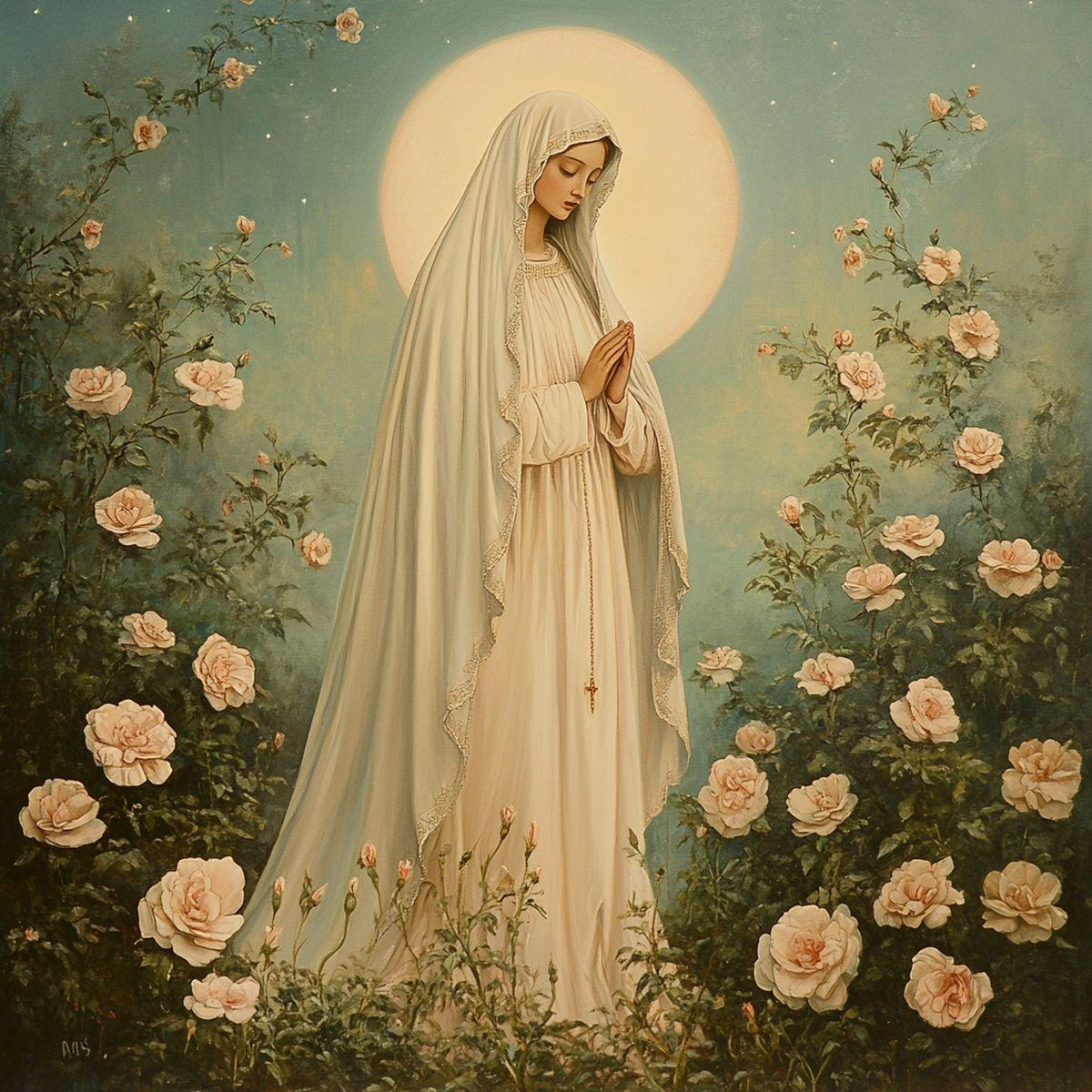
Prompt 7:
Buddha statue in a tranquil lotus pond, lotus flowers floating. The sky glowing at sunrise. Traditional Asian art style, detailed shading on the statue, vibrant reflection in the still water
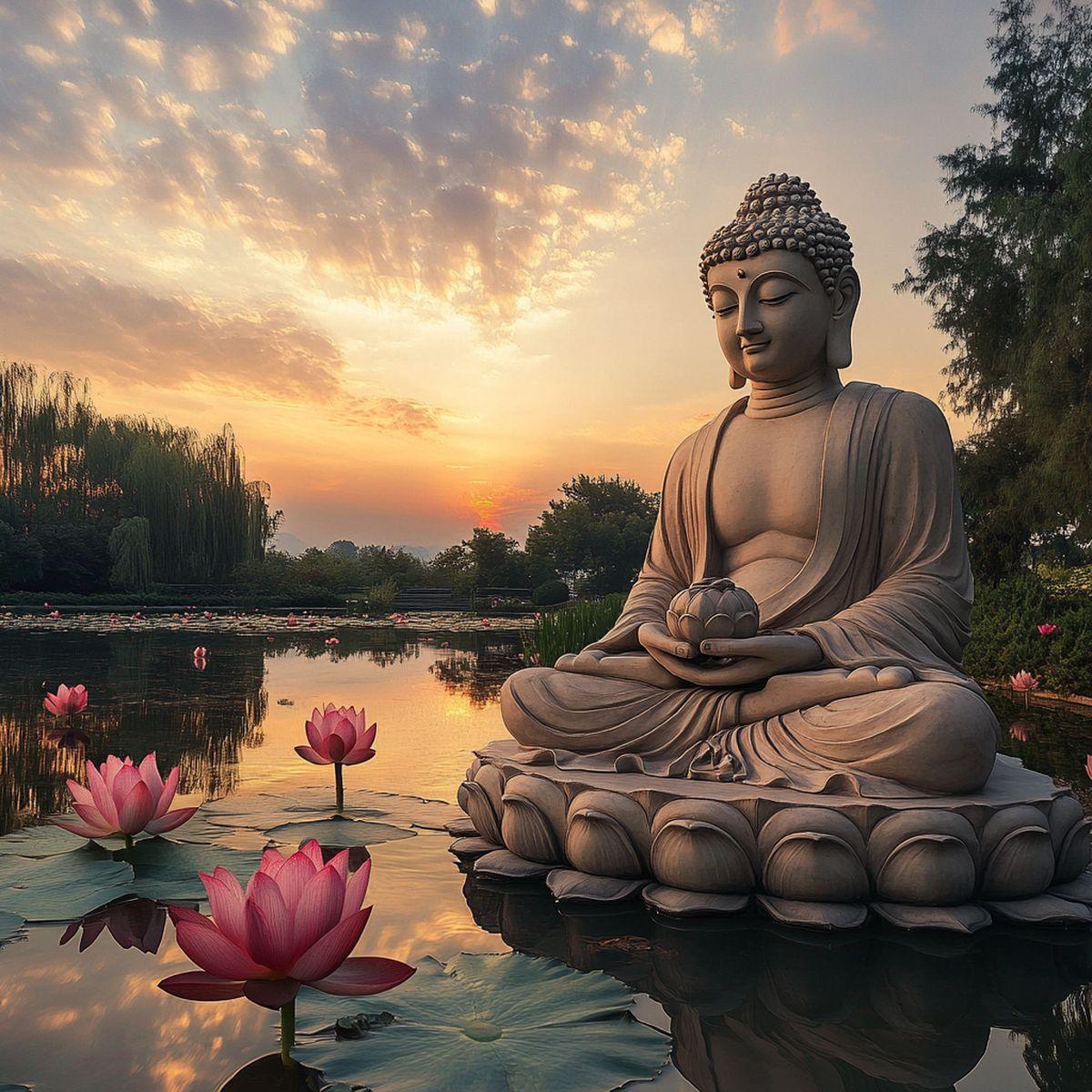
Prompt 8:
An illuminated manuscript page, with a depiction of a saint surrounded by gold-leaf borders. Medieval style, ornate text intertwined with intricate religious symbols, soft glowing parchment, carefully crafted calligraphy
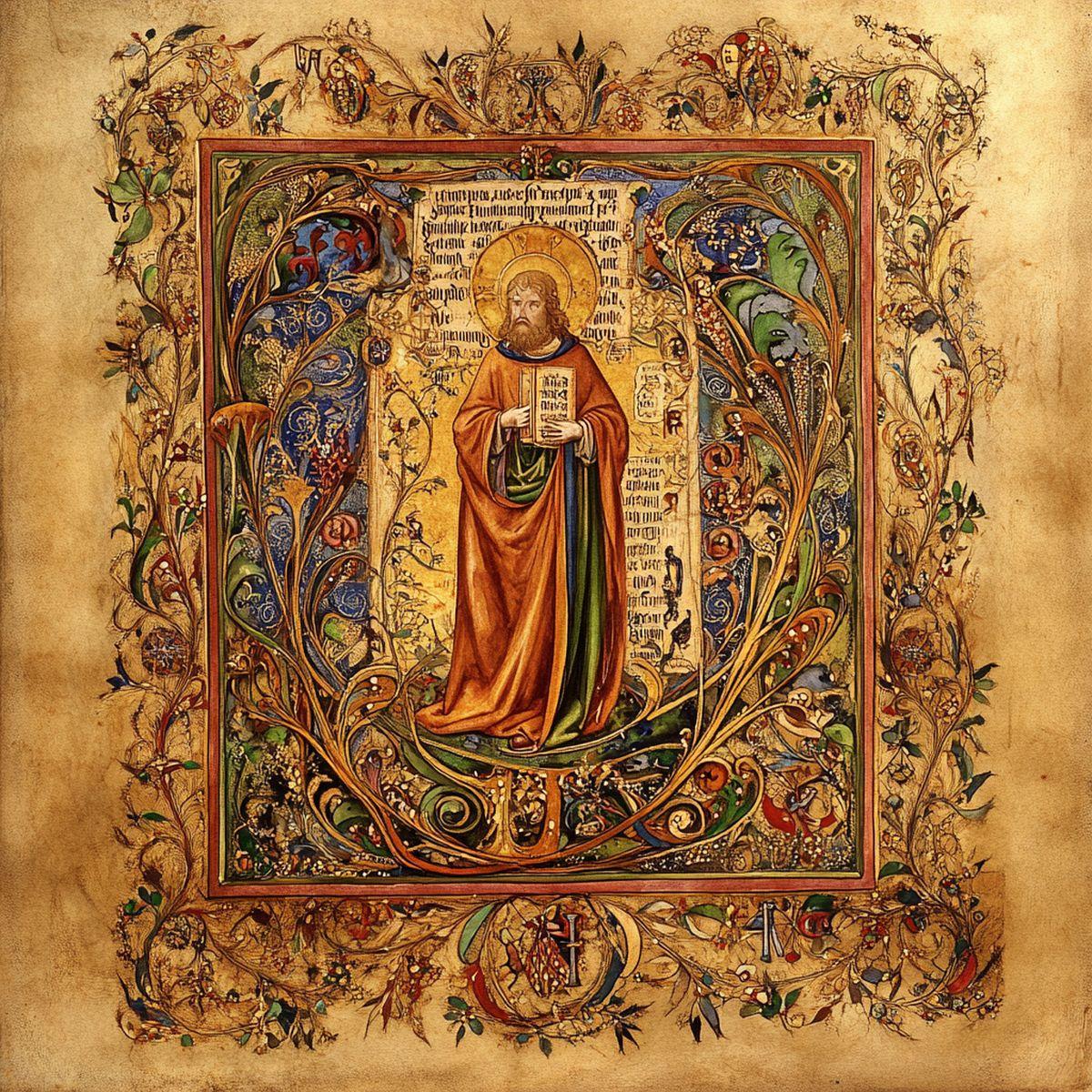
Prompt 9:
Krishna playing a flute by a river under a full moon, surrounded by dancing figures. Traditional Indian art style, vibrant colors, rich in symbolism, intricate detailing in garments, soft moonlit reflections
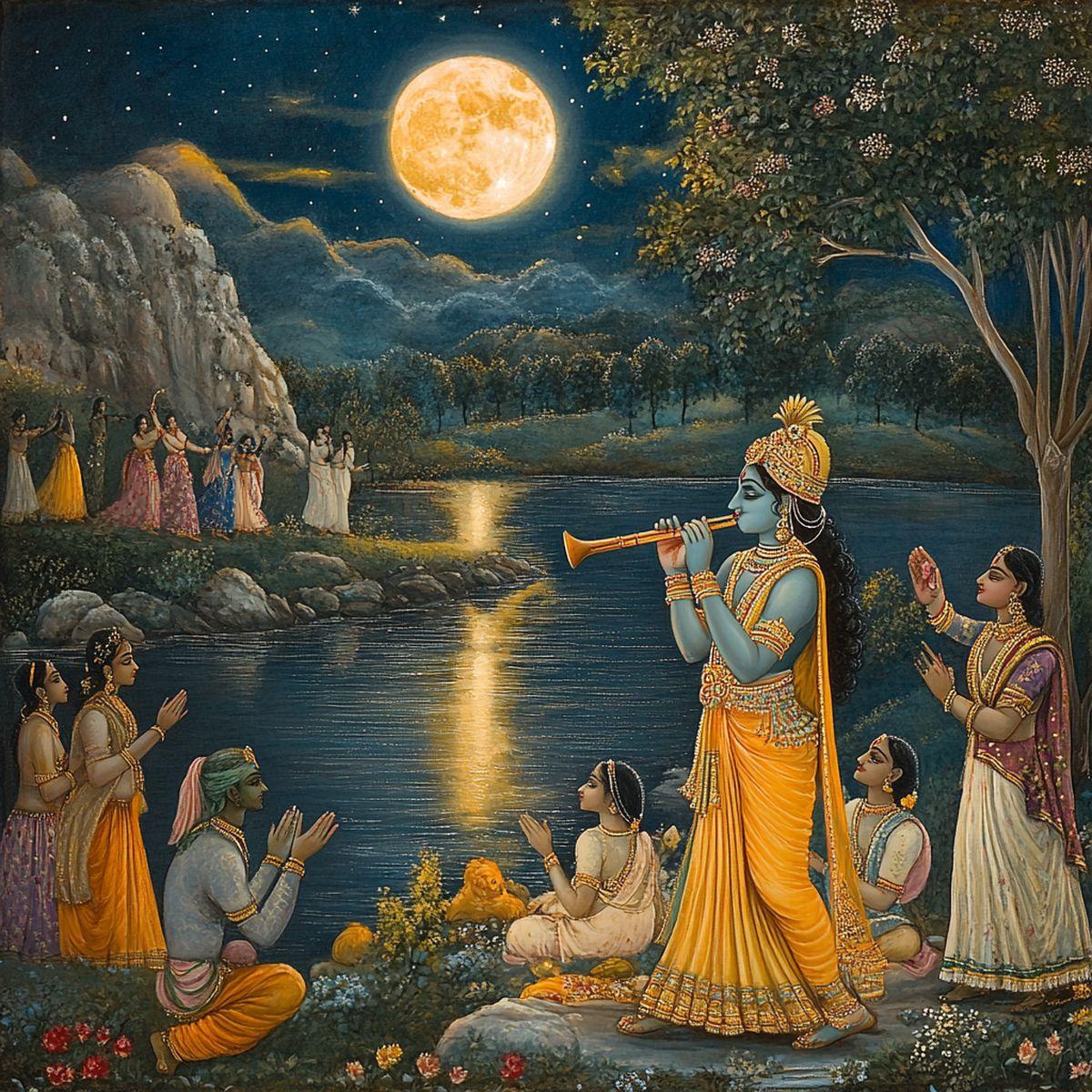
Prompt 10:
Sacred mandala, intricately designed with radiant golden and blue patterns, at the center of a cosmic backdrop. Contemporary digital art style, precise geometric shapes, symbolic layers of spirituality and enlightenment
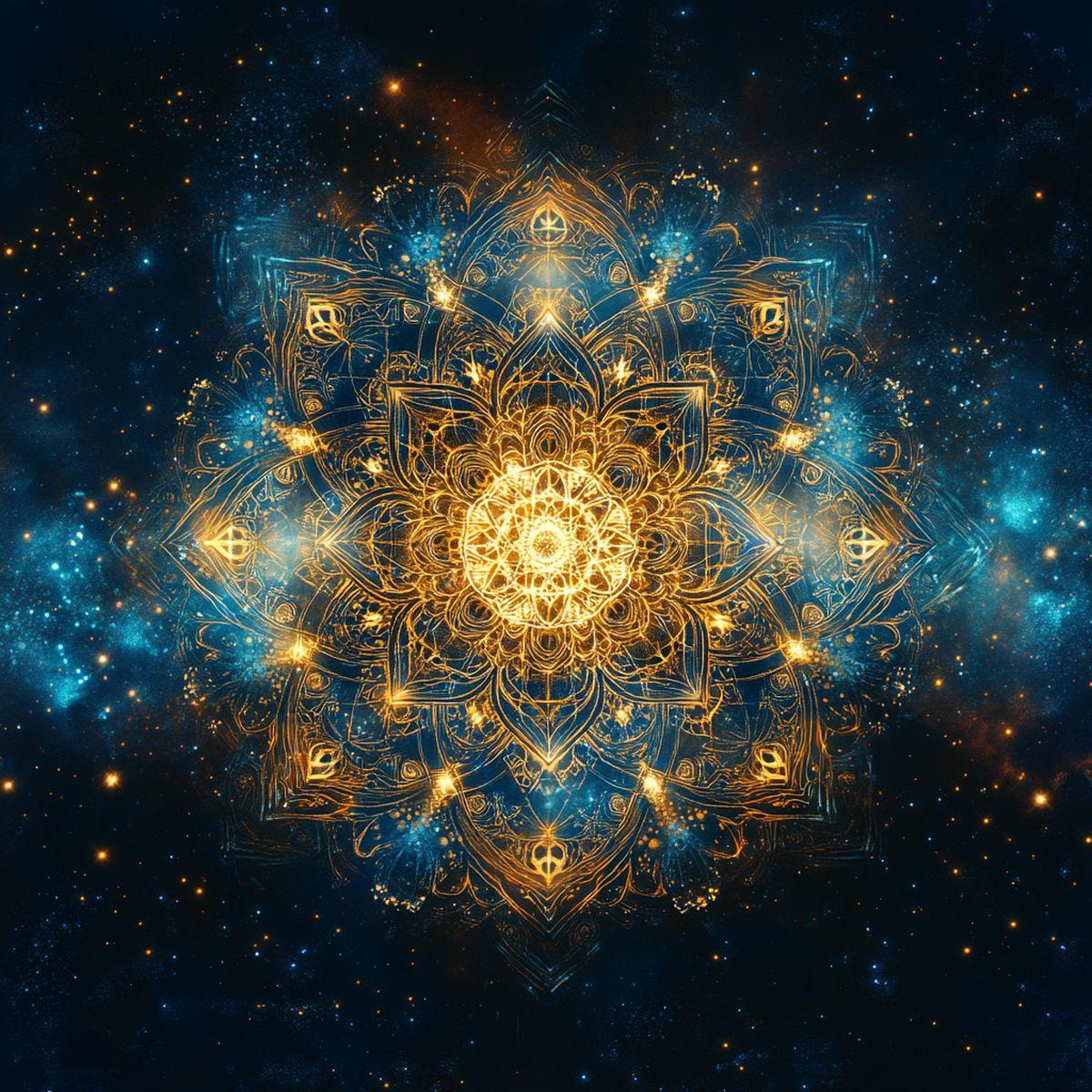
Prompt 11:
A mystical Sufi dancer, spinning in a desert under a twilight sky, surrounded by glowing dust particles. Minimalist yet expressive, soft pastel tones, flowing robes emphasizing spiritual transcendence
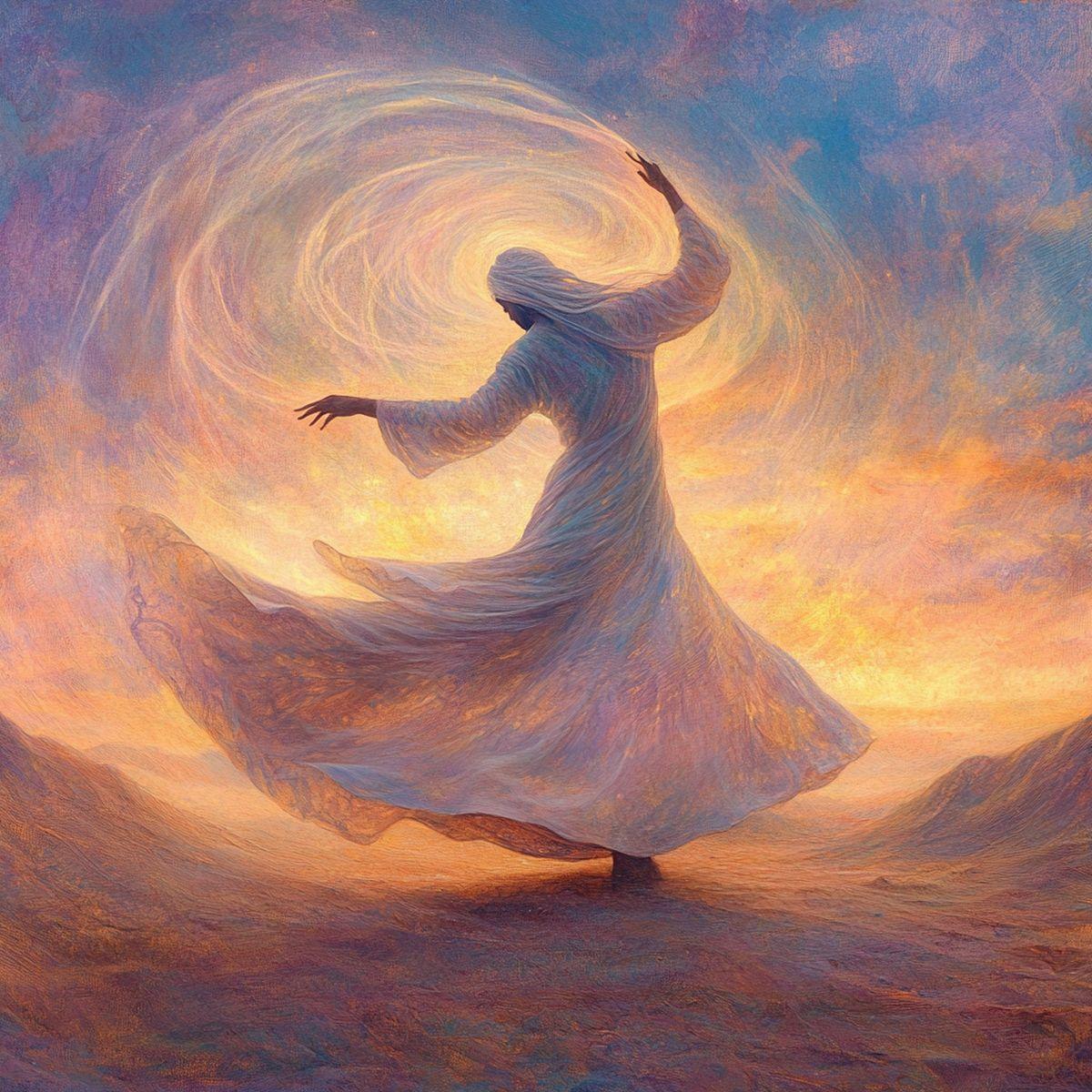
Prompt 12:
A peaceful prayer circle under a starry sky, celestial figures hovering above in glowing robes. Symbolist art style, rich in metaphors, detailed facial expressions, blending mystical and earthly elements seamlessly
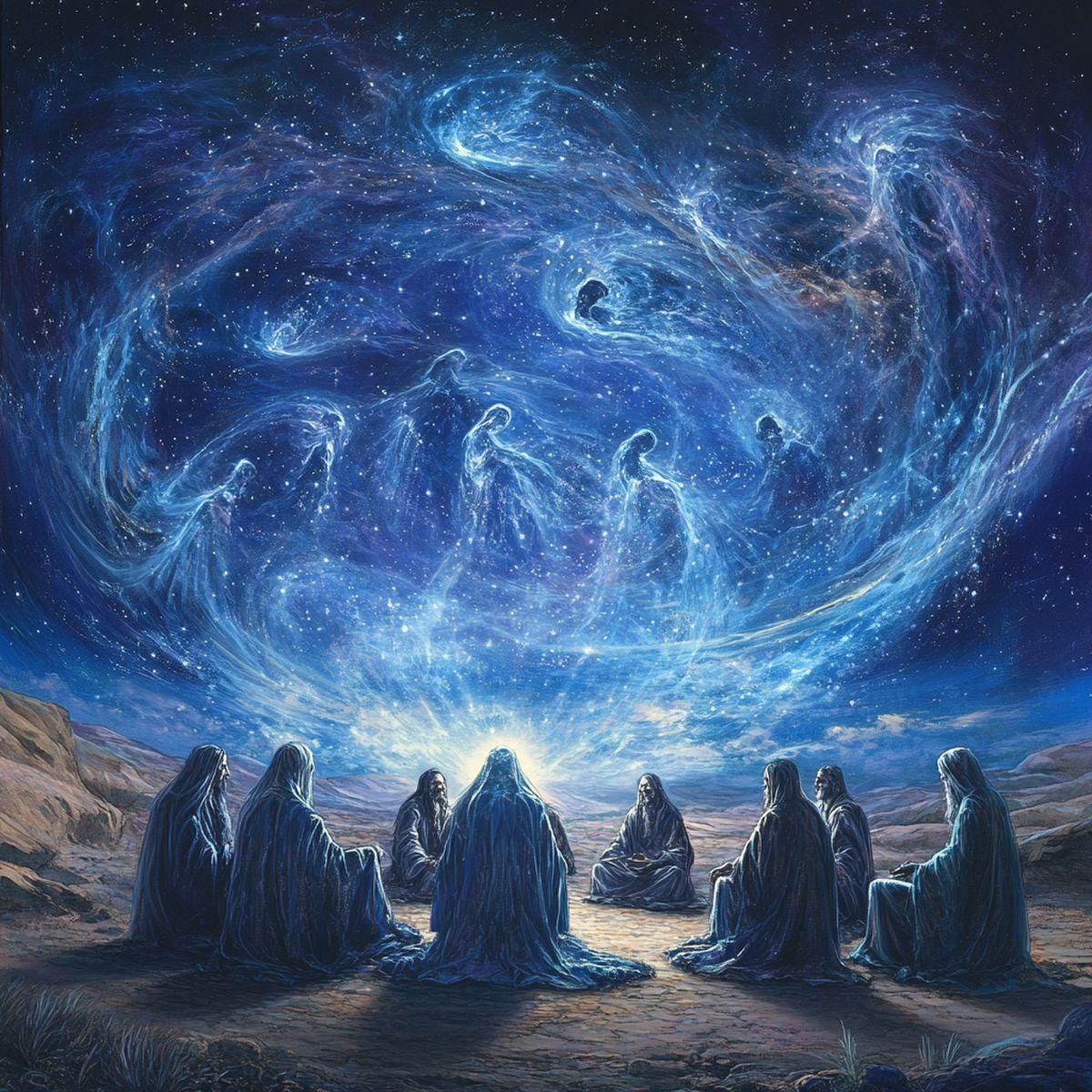
Prompt 13:
A radiant cross bathed in golden light, emerging from a tranquil sea at dawn–Surrounded by calm waves and glowing skies–Impressionist style, soft colors, evoking peace and spiritual renewal
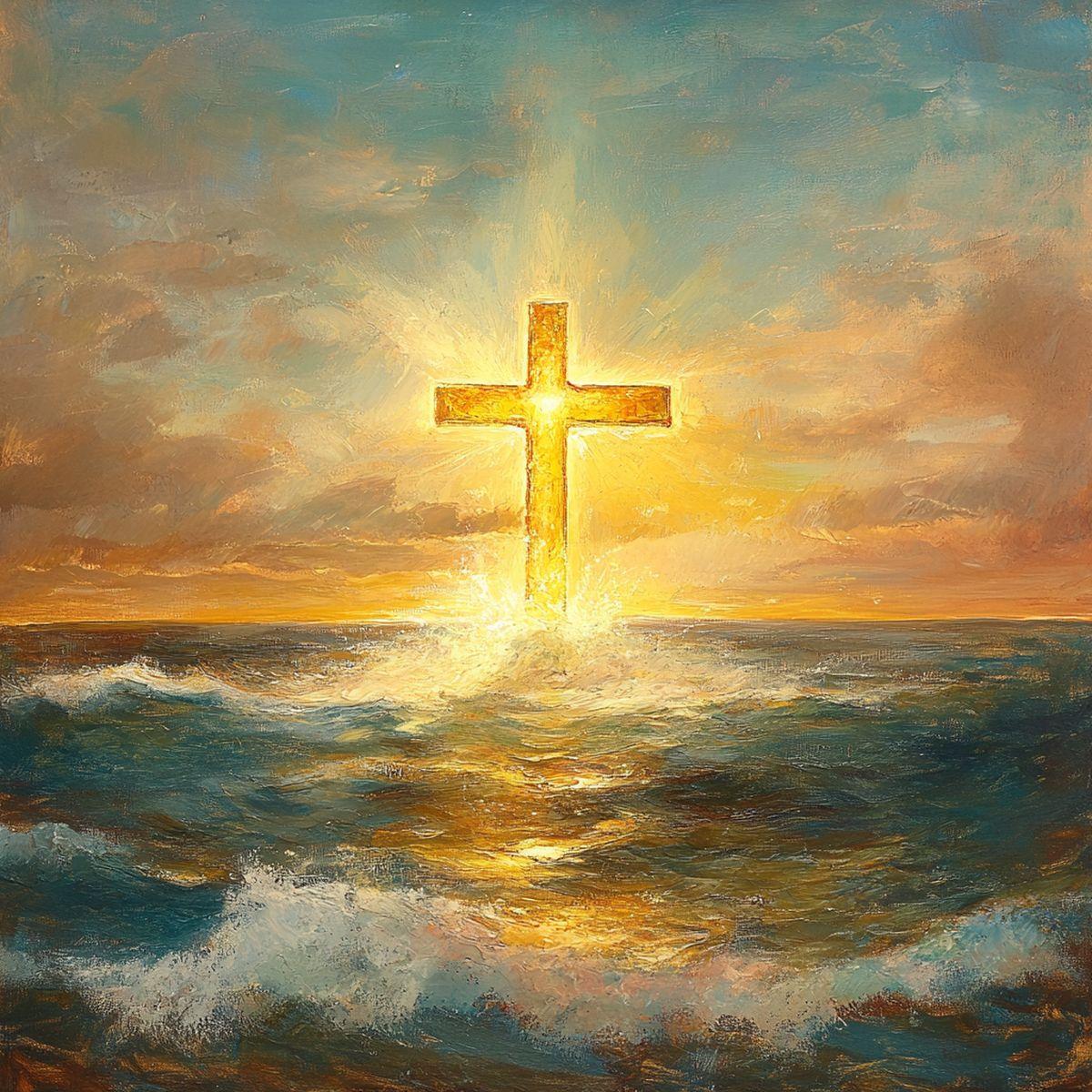
Prompt 14:
A serene Buddha meditating under a Bodhi tree, surrounded by glowing lotus flowers–Tranquil evening setting, warm hues reflecting inner peace–Traditional Asian style, delicate shading, spiritual calmness pervading the scene
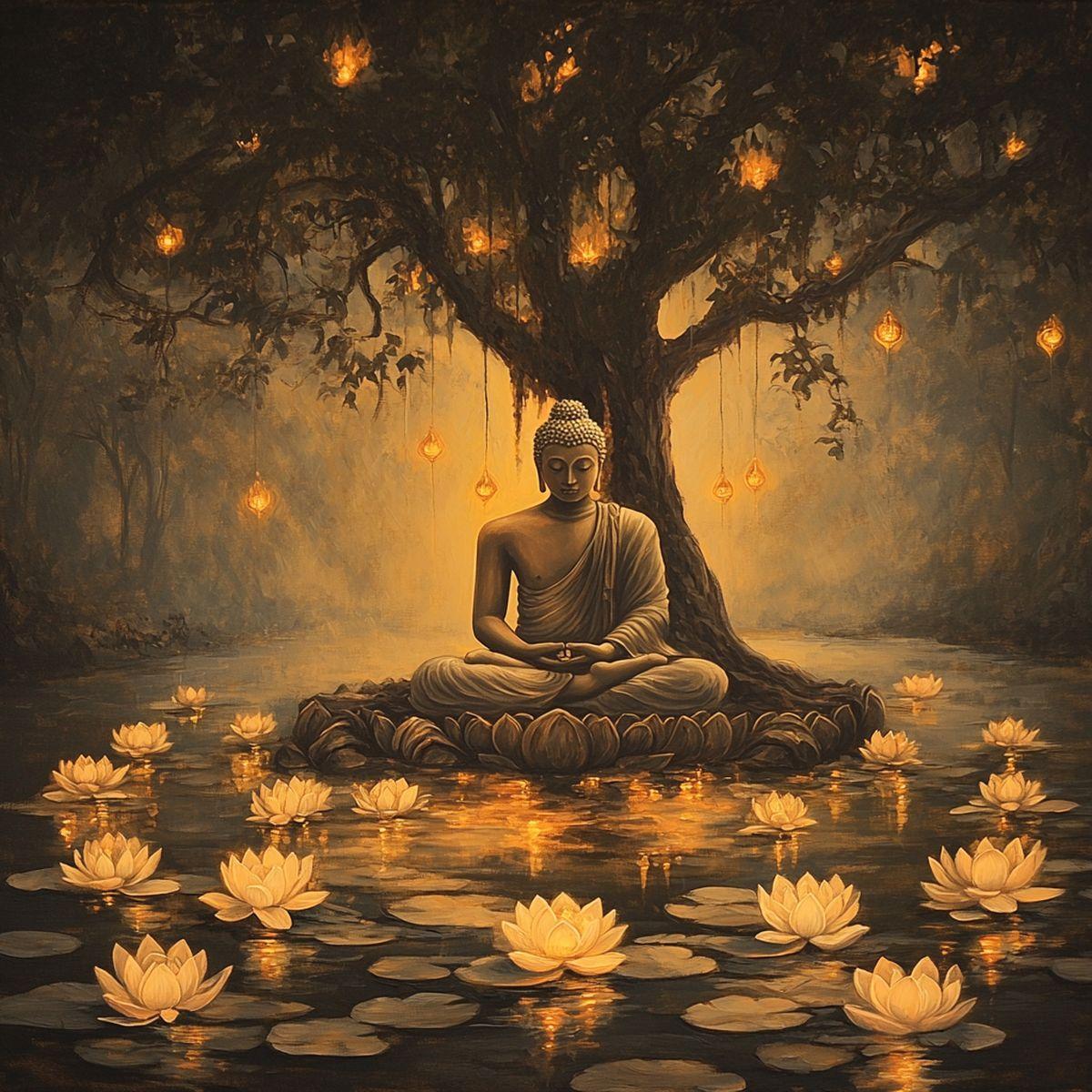
Prompt 15:
Majestic cathedral interior, illuminated by sunlight streaming through stained glass windows–High arches, intricate carvings and glowing mosaics–Renaissance-inspired, vibrant colors, sacred atmosphere invoking divine reverence and awe
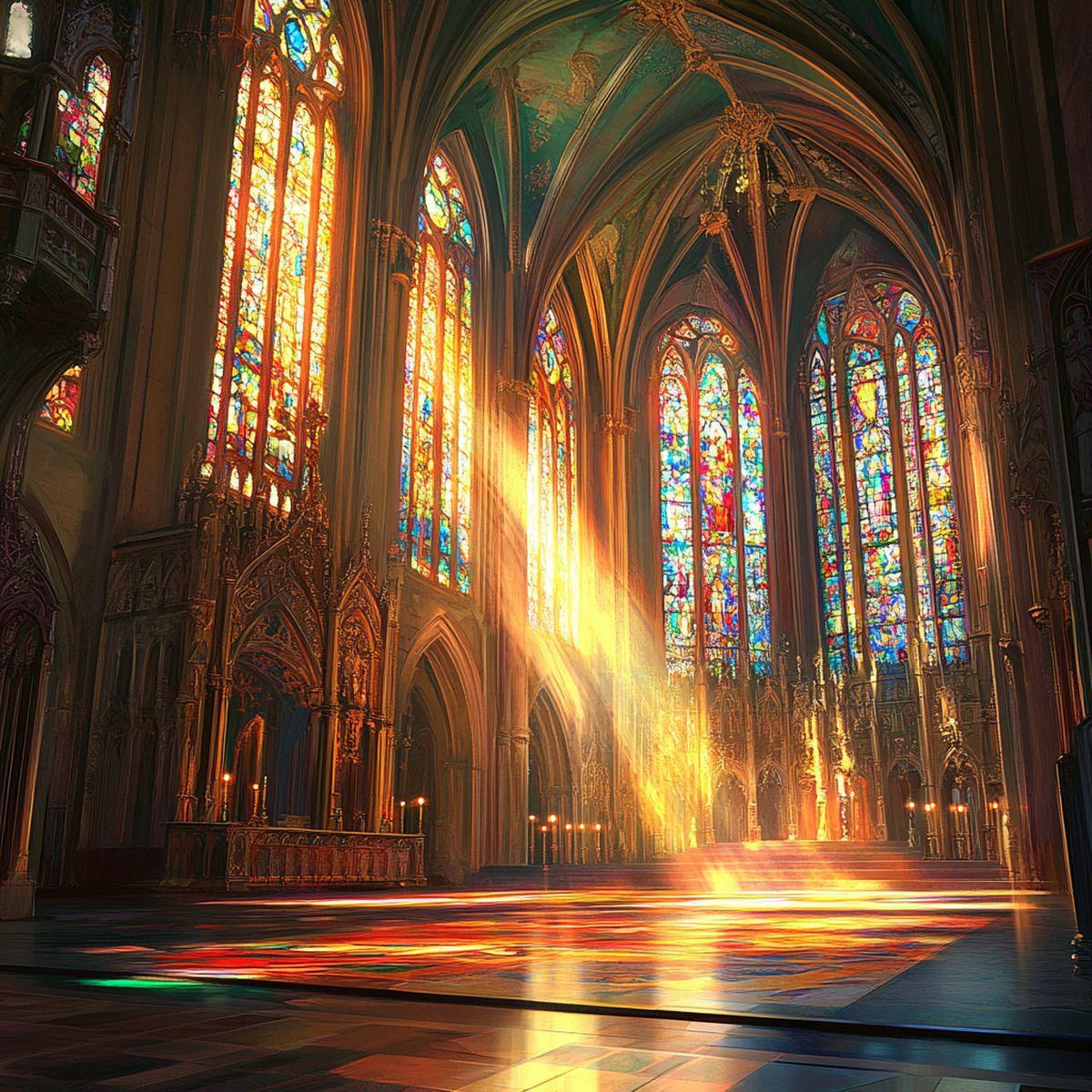
8 tricks to create the best AI-generated religious art
Here are some helpful tips to enhance your outputs:
1. Be clear and descriptive
When creating prompts, detail matters. Instead of just requesting a “spiritual scene,” describe the specific figure, action, or environment you have in mind. For example, instead of asking for a generic “sacred figure,” request “a serene angel with golden wings extending, holding a glowing orb.” The more vivid and specific you are, the better your results will be.
2. Utilize artistic styles
Different art styles can dramatically change the feel of your creation. Consider the visual impact of each style—whether it’s the softness of Renaissance, the intricate details of Byzantine, or the dramatic contrasts of Gothic. Try experimenting with these references to give the AI a stronger sense of the direction you’re aiming for.
3. Incorporate symbolism
Religious art is steeped in symbolism. Include elements that hold spiritual significance, like halos, sacred texts, or celestial light. For instance, in a scene of a meditating saint, you might specify “a detailed halo” to signify divine presence. These symbols can help add depth and meaning to your work.
4. Experiment with environments
Don’t limit your prompts to just a figure or object—set the scene! A serene riverbank at dusk or a grand cathedral bathed in sunlight can completely transform the feel of your image. Play around with sacred landscapes, temples, or celestial skies to add ambiance and context.
5. Adjust lighting and mood
Lighting is a powerful tool in religious art, often used to signify divine presence or sacred moments. Experiment with phrases like “soft candlelight,” “radiant glow,” or “moonlit garden” to enhance the emotional tone of your piece. The right mood can bring out the spiritual significance of your artwork.
6. Mix motifs from different cultures
One of the wonders of AI-generated art is that you can mix motifs and symbols from different spiritual traditions. You might create a Buddha statue in a Byzantine-inspired setting or an angel in an Indian art style. This kind of cross-cultural blending can result in unique, harmonious works that reflect the universality of spirituality.
7. Focus on emotion
Religious art often seeks to evoke deep feelings of reverence, peace, or awe. To achieve this, include emotional cues in your prompt. Words like “contemplative,” “solemn,” or “joyous” can influence the expressions and overall feeling of the generated image.
8. Refine with color and texture
Don’t hesitate to mention specific colors or textures. If you want a vivid, rich depiction, specify warm tones like “deep reds and golds,” or go for cooler, more peaceful hues like “soft pastels.” Additionally, talk about textures—whether you want something smooth and modern or textured like a fresco.
Don’t be afraid to experiment
When creating AI-generated religious art, the beauty often lies in experimentation. Don’t hesitate to push boundaries and explore new combinations. Try blending unexpected elements—perhaps a serene Buddha in a Baroque style, or a mystical Sufi dancer in a Byzantine-inspired setting. Experiment with abstract textures or surreal lighting effects to see how they alter the spiritual message of your art.
Remember, AI tools are your canvas, and prompts are your brush. The more you explore, the more you’ll uncover new layers of creativity and depth in your AI-generated religious art!
Image cedits: Kerem Gülen/Midjourney






